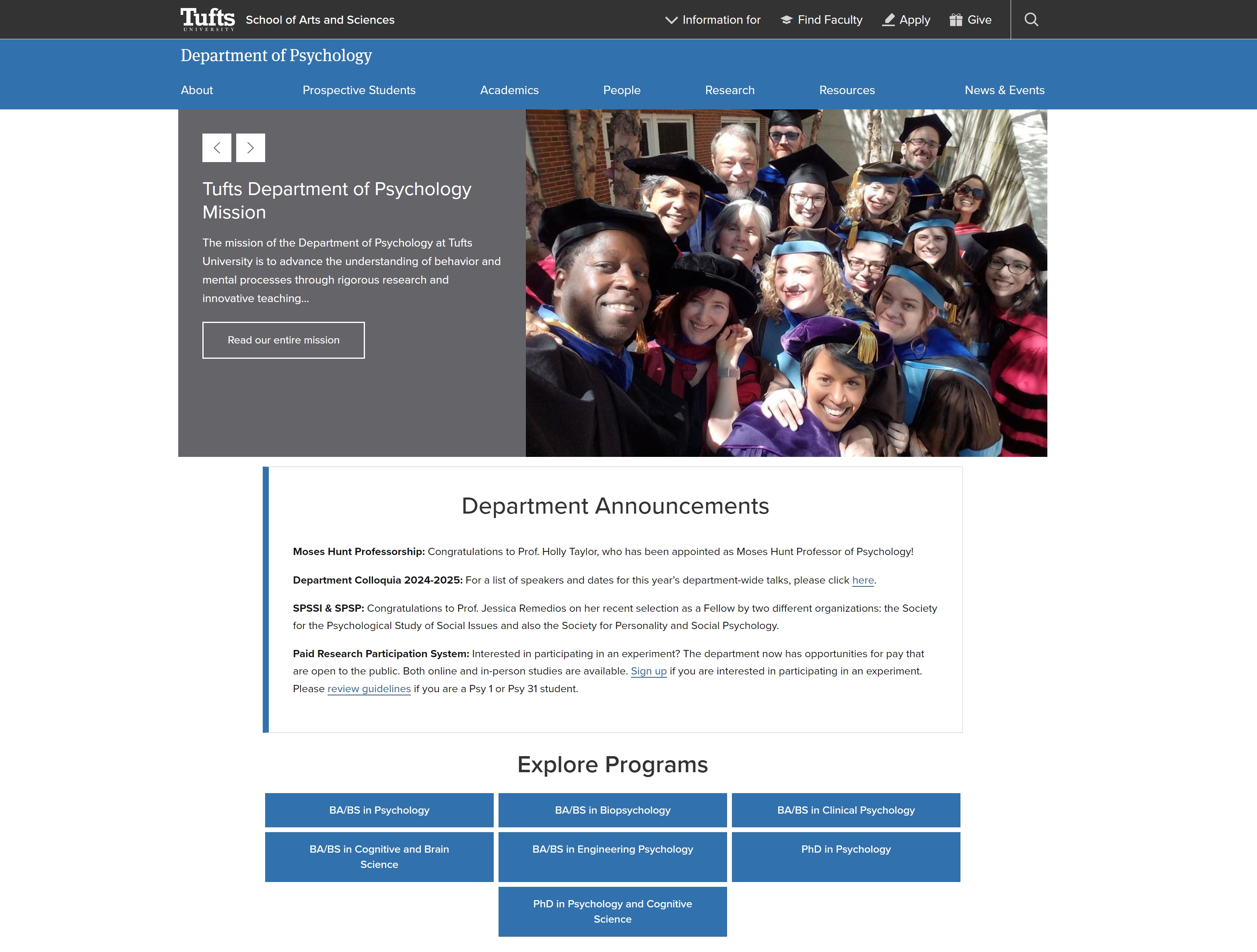
iScience Group at University of Konstanz
The iScience group at the University of Konstanz focuses on methodologies for Internet-based scientific research and the interplay of Internet and Psychology.

Részletes Bevezetés
Rooted in Methodology and Experimental Psychology, the group also explores Personality Assessment and Cognitive Science. Participants can engage in experiments and tests, while researchers can find tools and methods for Internet-based research.
TöbbKutatás

Duke University Department of Psychology and Neuroscience
The Psychology & Neuroscience community is dedicated to creating an academic and social environment where each person can flourish. We have ongoing Diversity, Equity & Inclusion efforts, led by the Psychology & Neuroscience Task Force, to develop strategic priorities for diversity and inclusion with measurable outcomes. It is our priority that all students, staff, faculty, mentors, and trainees – every member of our community – is represented and supported.

The Ohio State University Department of Psychology
The OSU Department of Psychology aims to produce exceptional, innovative research to advance knowledge about mind, brain, and behavior, with the goal of understanding and improving the human condition. We create, synthesize, and translate knowledge about behavioral, psychological, and brain processes to provide a foundation for educating our students and the public. We train undergraduate, graduate, and post-doctoral scholars to become 21st-century psychological scientists able to evaluate, apply, and create knowledge. We value diversity and inclusion of persons, perspectives, and approaches because it enriches our work and fosters a supportive and intellectually stimulating department community.

Tufts University Department of Psychology
The Department of Psychology at Tufts University conducts cutting-edge research aimed at understanding the causes and consequences of mental processes and behavior. Our work addresses social, cognitive, and neural levels of analysis. We are innovative and interdisciplinary in our approach and emphasize understanding phenomena that have a direct impact on society. Scientists at all levels - faculty, postdoctoral trainees, and graduate and undergraduate students - engage in collaborative scholarship and critical thinking in the classroom and in the laboratory. This synthesis, between research and teaching, positions us to ask and answer fundamental questions while also enriching our students' understanding of psychology.